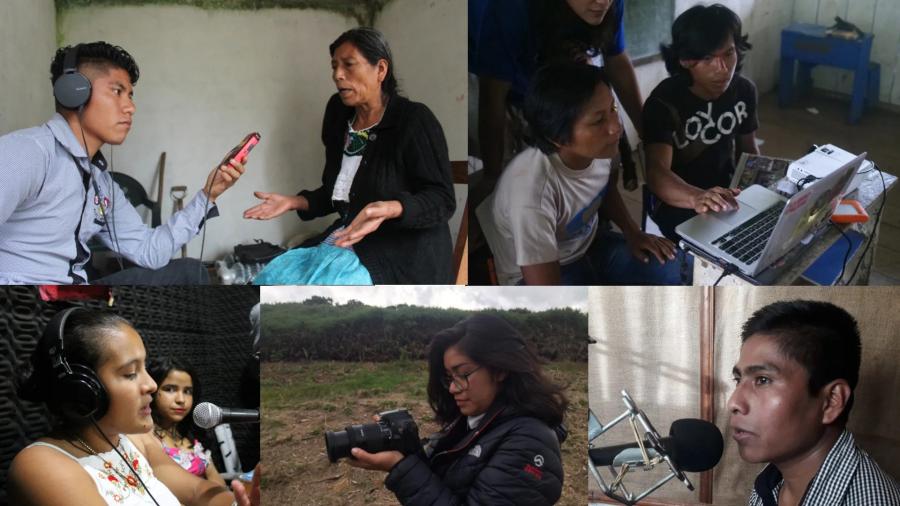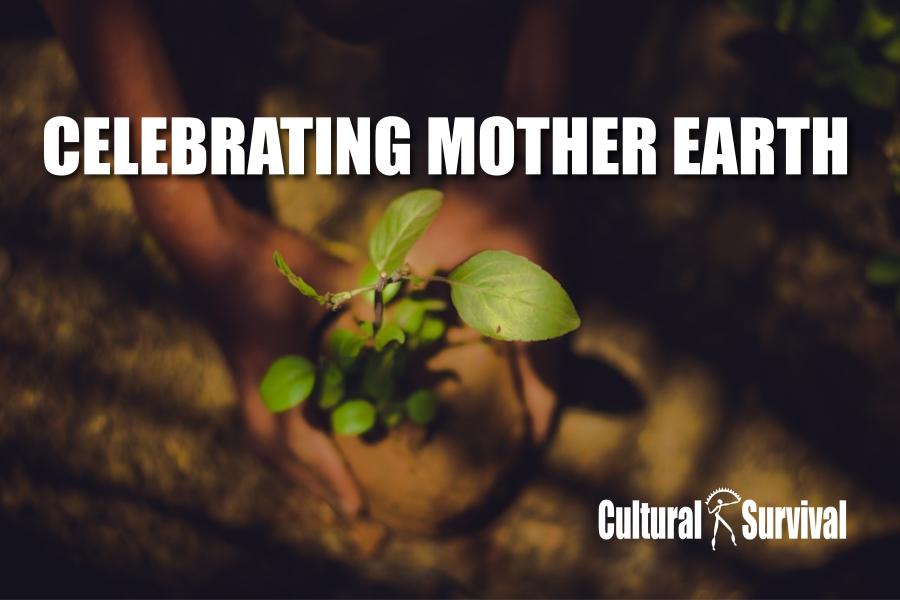
Our Indigenous Youth Fellowship Program supports young Indigenous leaders between the ages of 17-28, who are eager to learn about technology, program development, journalism, community radio, media, and Indigenous Peoples’ rights advocacy. Since 2018, we have awarded 110 fellowships supporting 204 fellows.
Fellowships have allowed youth to build capacities in Indigenous rights, Indigenous languages, cultures, and Traditional Knowledge. It is an opportunity to assist fellows to represent the voices of their communities and bring awareness of local issues to global conversations through their proposed projects while strengthening their cultural identities and leadership.
Learn about what three of our youth fellows are up to!
Sabou Doumbia (Bambara), Mali
Sabou is a computer scientist with a degree from the Institute of Applied Science and Technology in Bamako, Mali. In addition to her expertise in IT, she is an entrepreneur focused on community development, project management related to waste management, and the circular economy. A recipient of the 2024 Cultural Survival Youth Fellowship, Sabou led a project titled "Preserving Our Lands and Our Future, Bambara," which aimed to raise awareness among the women of the Bambara community in the village of Siby about the effects of climate change on their lands. The goal was to preserve Indigenous lands, strengthen the community’s resilience to environmental changes, and promote sustainable development in harmony with the agricultural traditions of the local Bambara community. Sabou’s project advocated for sustainable agriculture and the use of eco-friendly fertilizers to encourage environmentally responsible farming practices.
The project consisted of several activities, including a campaign to educate local communities about sustainable farming practices and a series of practical workshops held in collaboration with the Association of Women of Siby. These workshops taught participants how to produce their own organic fertilizers from organic waste, as well as natural pesticides. The training also included techniques for preserving agricultural products and optimizing their use to improve crop yield.
The women of Siby expressed their satisfaction with the simplicity and effectiveness of the techniques, which helped reduce farming costs. They also said they felt more independent and capable of meeting their needs without relying on chemical products available on the market. One participant, Mah Coulibaly, said, “Thanks to this training, we learned how to make the most of what we already have around us. The fertilizer we produced allowed us to grow our vegetables without having to buy chemical products. The pesticides we made with local ingredients helped protect our plants from harmful insects. We learned, saved money, and the results were satisfying.”
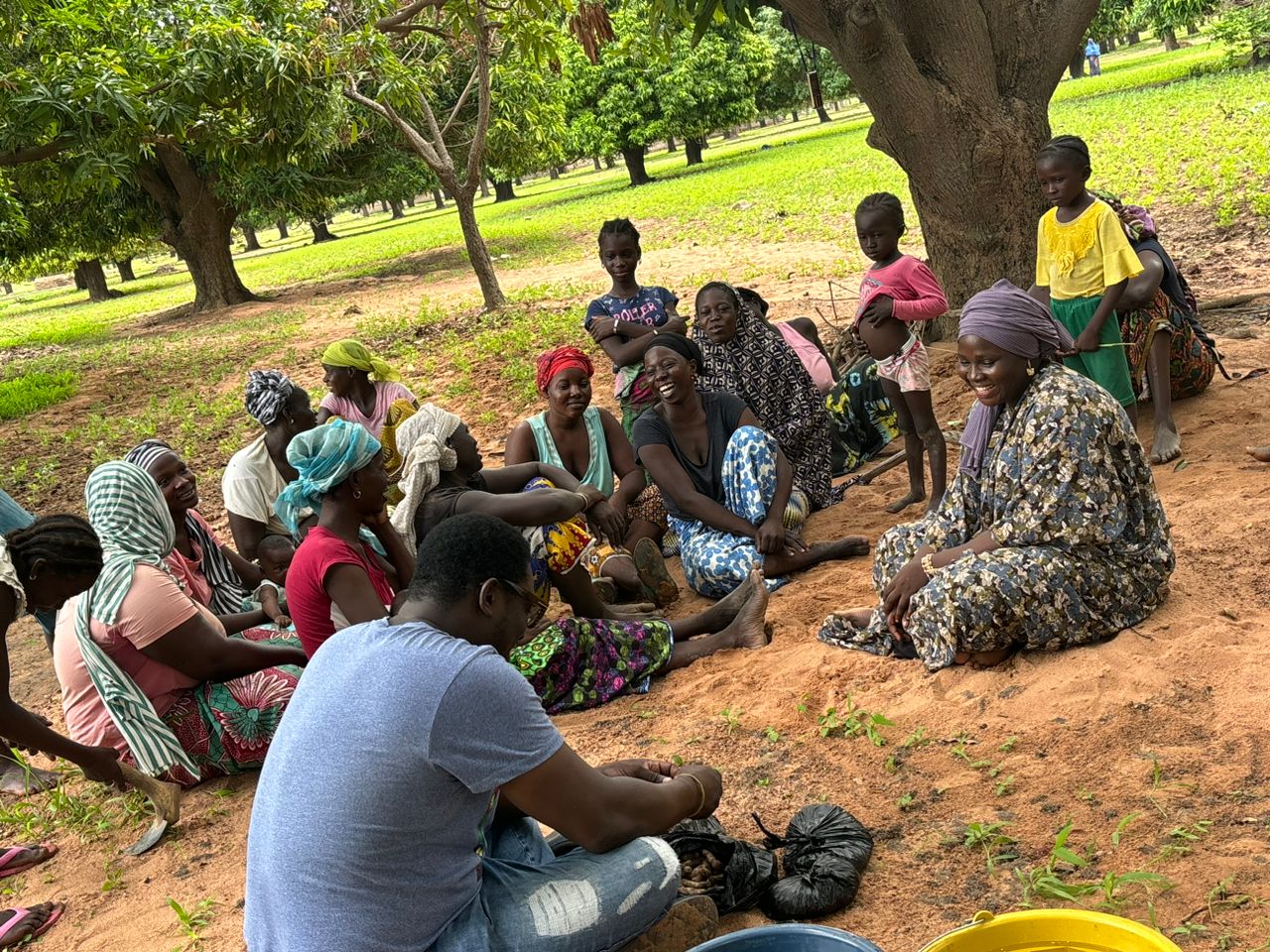
The project directly contributed to mitigating the effects of climate change by reducing local farmers' dependence on chemical products, which are not only expensive but also harmful to the environment in the long term. By introducing natural and biological solutions, Sabou and her team helped farmers adopt more environmentally friendly practices while improving soil fertility and reducing their ecological footprint.
At the conclusion of her project, Sabou found that the women of Siby are not only affected by climate change, but that the cost of organic agricultural products is increasingly high. She also realized the importance of the women producing their own organic fertilizers for their crops, and the need for additional resources and knowledge to improve their farming practices.
For Sabou, this project was also a personal development opportunity, particularly in terms of project planning, given the challenges posed by the rainy season. A key element of her success was her ability to engage the women and secure their commitment to the project’s implementation. Through this experience, she enhanced her skills in project management and planning.
Shumari Daniel Parsakei (Maasai), Kenya
Shumari Daniel is an Indigenous youth from the Maasai community of Kenya. He recently graduated from the University of Nairobi with a bachelor’s degree in Environmental Conservation and Natural Resources Management and is actively involved with youth organizations in Transmara, Narok County. As extension and coordination officer at the community level, he facilitates youths’ engagement in sustainable agriculture, intergenerational transfer of Traditional Knowledge, and addressing climate change, particularly in light of decreasing land availability.
With support from Cultural Survival, Shumari implemented his fellowship project titled "Indigenous Youth Capacity Building, Kenya, Maasai Community," which aimed to empower youth through activities focused on land rights education, health, education, and the preservation of traditional practices.
The first major activity was a stakeholder meeting where local leaders and community members gathered to discuss key issues affecting the youth in their community. Topics included substance abuse, early school dropouts, and sexual and reproductive health. These topics were not initially part of the project proposal, however, upon recognizing the urgency of these issues, the group collectively agreed to address them alongside the original intended focus on land rights, land ownership, and tree planting in schools.
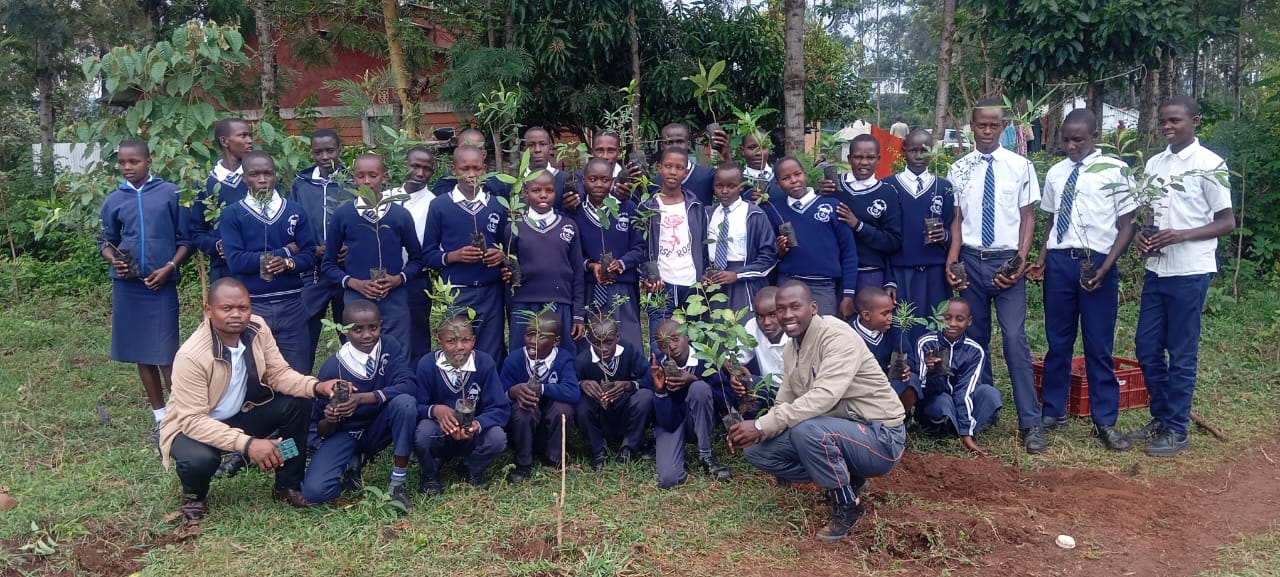
The second activity was a land rights and ownership meeting where youth were educated on the significance of land rights. The focus was on understanding title deeds and the constitutional right of both males and females to inherit land, which challenged the traditional practice that only males can inherit land. This meeting aimed to raise awareness and promote gender equality in land ownership, an issue central to the Maasai community's future sustainability.
For the third activity, a Girl Empowerment Day was organized with 70 girls participating. The event covered essential topics such as reproductive health, personal hygiene, life skills, and Traditional Knowledge. To support their wellness and hygiene, the girls received sanitary pads and soap. The day empowered young girls with critical information and resources, helping them navigate health and education challenges in their communities.
The fourth and final activity was a Boys Empowerment Meeting, where 55 boys were trained on various topics including sexual and reproductive health, the importance of academic empowerment, and the role of education in improving their family’s living standards. They were also taught about personal hygiene, life challenges, and traditional practices, helping them to develop the skills needed to contribute positively to their community’s development.
Participants and beneficiaries testified to the project’s positive impact on their personal and community development. Reflecting on his fellowship experience, Shumari said, "I have grown by deciding to work with the youth and my community." Participants also recommended the expansion of similar initiatives and requested more workshops and training sessions to reach a broader number of youth in the community.
Akuzibwe Balangaliza Espoir (Batwa), DRC
Espoir Balangaliza is a young advocate for Indigenous Peoples in the Democratic Republic of Congo with a passion for philanthropy and traditional entrepreneurship. He is currently coordinator of the Réseau Espace Climat (Climate Space Group), a platform that brings together more than seven civil society organizations representing Indigenous Peoples in eastern DRC. As a youth delegate for the African Union in the DRC and a Peace and Climate Ambassador for Peace World International, Espoir plays a key role in promoting environmental and social causes.
Espoir’s Cultural Survival Youth Fellowship project is entitled “The promotion and popularization of biomass-based briquettes, an asset for achieving ODD7 and mitigating climate impacts in South Kivu province.” The project was implemented in the Bambote and Batwa Indigenous communities in the Fizi territory, close to the Bobondo Fizi, Emo-Imakala, and Hewa Bora protected areas. The aim was to promote the production of biomass-based briquettes, offering a sustainable alternative to charcoal and thus reducing pressure on local forests while empowering Indigenous women and youth in the fields of entrepreneurship and climate justice.
Four briquette production sites have been set up as part of the initiative, enabling women to start up local production. Each production unit was equipped with the necessary machinery and kits. A total of 30 women and 10 young local people were involved in the production phase. The participants received training in financial management and marketing to better commercialize their products, creating a sustainable model to be replicated in other regions.
Awareness-raising campaigns were conducted through radio and television broadcasts to inform the public about the importance of adopting briquettes as a source of energy and protecting Congolese forests. Educational and advertising spots reinforced this awareness, highlighting the advantages of this energy alternative and the importance of preserving natural resources. The use of local media enabled these messages to be disseminated in an accessible way, including in rural areas.
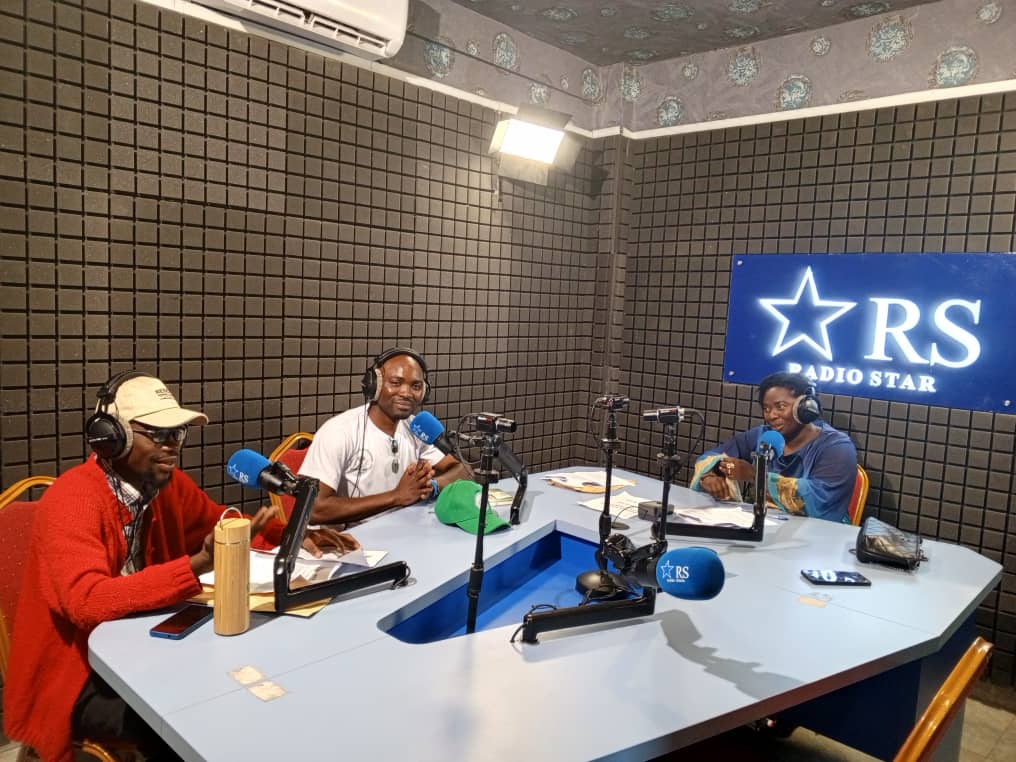
The project's participatory approach encouraged participant interaction with question-and-answer sessions after each activity. Beneficiaries deepened their knowledge of briquette production, forest conservation, entrepreneurship, and the fight against exploiting natural resources. They were also made aware of the importance of the media in forest protection and the popularization of local languages.
According to Espoir, the project benefited not only the 30 Indigenous women and 10 young people directly involved but also local authorities, leaders of Indigenous organizations, and the general population. This initiative has demonstrated that combining economic and environmental solutions is possible while enhancing local knowledge and strengthening community dynamics. It contributed to the empowerment of Indigenous women and young people and to the protection of natural resources, both essential for future generations.
At the end of the workshop, several recommendations were put forward to strengthen collaboration among State authorities, young people, and Indigenous women. These included raising young people's awareness of forest protection, ecological entrepreneurship, civic education, and pride in their local language. It was also suggested to create an ecological entrepreneurship program or a permanent framework for exchanges between Indigenous youth and the authorities. Advocacy to include young people in local decision-making bodies was encouraged, with particular attention to their nature-based views. It was also recommended that this entrepreneurship program be integrated into the budgets of decentralized territorial entities and that its progress be rigorously monitored.
Top picture: Sabou Doumbia (Bambara), Malí.
